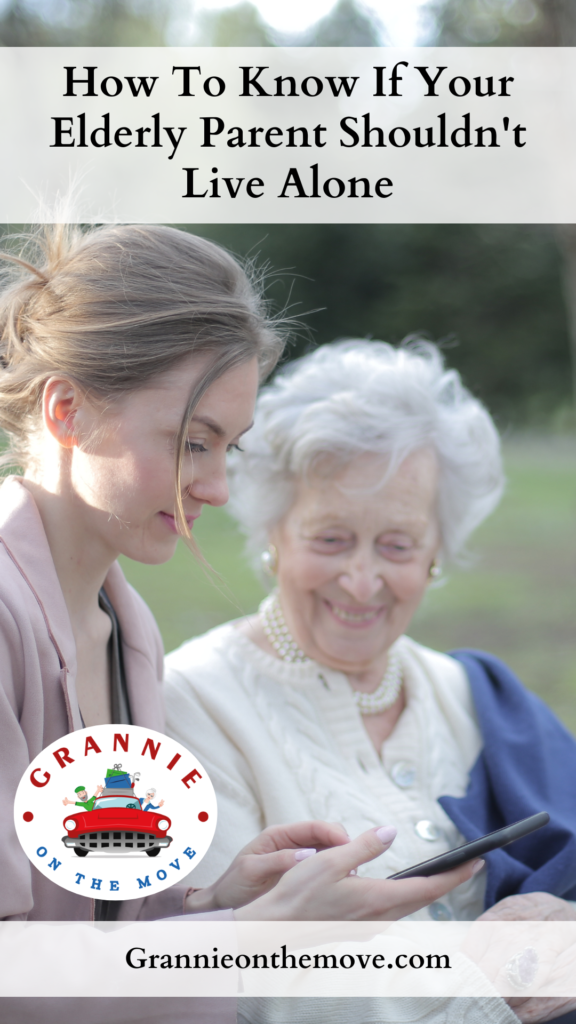It’s not an easy topic to address, but at some point, you may need to ask an important question: how would I know if my elderly parents shouldn’t live alone anymore?
Watching parents age can be challenging, especially when signs appear that they might no longer be capable of living independently. You may notice small challenges turning into daily struggles. This article aims to provide guidance on identifying those signs, understanding when your elderly parents shouldn’t live alone anymore, and navigating the resources available for support and care.
We understand this can be a difficult time filled with uncertainty and tough decisions. However, acknowledging the situation is the first crucial step towards ensuring the well-being and safety of your elderly parents. Throughout this article, we’ll discuss some red flags to watch out for, which might suggest that independent living is no longer a safe option.
Additionally, we’ll explore the resources available to assist you in navigating this complex situation. Remember, finding the right support can make this transition smoother for both you, your parents or elderly loved ones, and your family members.
Acknowledging the Reality: Safety Comes First
It’s a reality we often find hard to accept – our elderly parents or loved ones may not be able to live alone anymore. As difficult as it is to confront, their safety must always be our top priority.
Our emotions can make this realization challenging, but we must remember that ensuring their well-being is paramount. It’s essential to recognize when the risks of living alone outweigh the desire for independence.
Recognizing the Red Flags: Indications of a Necessary Change
In assessing whether your aging parent should live alone, there are some critical signs or ‘red flags’ to be aware of. These indicators could manifest in various ways – perhaps in actions you observe or comments your loved one makes.
For instance, noticeable weight loss might suggest difficulties in preparing meals or forgetfulness in eating regularly. Similarly, unexplained bruises or injuries could be signs of falling or mobility issues. You might also hear your loved one expressing feelings of loneliness or isolation more frequently. Trouble driving and difficulty remembering where familiar places are located can be another red flag for cognitive problems.
You should not overlook these signs, as they can be vital indicators that a change is needed for the safety and overall well-being of your older family member and the peace of mind of the whole family. Acknowledging these signs and acting upon them, although difficult, is a crucial part of ensuring the best possible care for your loved one.
Every family’s situation is unique, and while independence is essential, it should never come at the expense of safety or health.
Common Signs Your Elderly Parent Shouldn’t Live Alone Anymore
It’s natural to worry about your elderly parents living alone, and you may even feel guilty for considering alternative living arrangements. However, it’s vital that we recognize when our loved ones need extra support.
Here are some warning signs that could indicate independent living is no longer safe or feasible:
- Frequent falls or injuries: If your parent has a history of falls, it’s crucial to address any environmental or health issues that could be contributing. If the frequency of falls increases despite preventative measures, it may be time to explore alternative living arrangements.
- Difficulty managing daily tasks: Struggling with ADLs (activities of daily living) such as cooking, cleaning, or personal hygiene can indicate a decline in physical or mental capabilities. These difficulties with simple tasks can quickly escalate and pose significant risks to your parent’s safety and well-being.
- Social isolation or loneliness: As we age, our social circles often shrink, leading to feelings of isolation and loneliness. These emotions can have a severe impact on mental health, and it’s crucial to assess whether your loved one is receiving adequate social and mental health support. Depression is common among senior adults, and it’s essential to recognize the signs and address them promptly.
- Forgetfulness or confusion: Memory problems can be concerning in an independent living situation. These issues could threaten your parent’s safety, from forgetting to turn off appliances to missing necessary medication doses. If these memory issues are frequent and impact daily life, it’s essential to consider alternative living arrangements.
- Missing medication or appointments: Keeping track of medication schedules and medical appointments can become increasingly challenging as we age. If you notice your loved one missing doses or meetings, it could indicate that independent living is no longer a safe option.
Should I move my elderly loved one into my home?
This is a ubiquitous question many family members ask themselves when considering alternative living arrangements for older adults.
While moving them into your home can seem like a natural solution, it’s essential to consider all factors carefully. It’s crucial to assess whether you have the necessary space, resources, and support to provide adequate care for your loved one.
Additionally, it’s vital to remember that this decision will impact not only your life but also that of your parents. Open and honest communication with your loved one is crucial in making this decision.
Navigating the Resources Available: Finding the Right Support
As we’ve discussed, determining whether your elderly parent should live alone is complex and emotional. The good news is that numerous resources are available to assist you in navigating this situation.
From support groups and in-home care services to assisted living facilities, there are options to fit every family’s unique needs and circumstances. It’s essential to research and explore these options to find the right solution for your loved one.
Support Groups
Support groups can be an invaluable resource for both you and your parents. These groups offer a safe space to share experiences and concerns with others going through a similar journey. Support groups can provide valuable emotional support and practical advice on navigating the challenges of caring for an elderly loved one, beginning with the difficult conversation of different living arrangements.
In-Home Care Services
In-home care services offer assistance with daily tasks, such as meal preparation, housekeeping, and personal care. These services can enable an elderly person to remain in their own home while receiving the support they need to maintain their independence and safety. This is ideal for those who want to keep their loved one close but may not have the time or resources to provide full-time care to the affected family member.
Assisted Living Communities
Assisted living facilities, otherwise known as assisted living communities, offer a range of care levels, from minimal assistance with daily tasks to more comprehensive medical care. At its heart, an assisted living community provides a supportive senior living community environment for elderly individuals who are no longer able to live independently.
Memory Care Communities
For those with dementia, Alzheimer’s disease or other cognitive impairments, memory care communities offer specialized support and services. A memory care community has staff trained to provide care specifically tailored to the needs of older people with cognitive decline and memory loss.
Conclusion
In conclusion, the decision to move an older parent away from living independently should not be taken lightly. It’s a delicate balance between maintaining their autonomy and ensuring their safety. If you are noticing clear signs (like cognitive impairment or physical decline) that your elderly parent shouldn’t live alone anymore, it’s essential to start the conversation and explore options.
Remember, you’re not alone in this journey—outside help exists. Contact ‘Grannie On The Move’ for expert advice and assistance. We can help you with conducting assessments, providing suitable placement options, and managing transitional care. Our team understands the complexities involved and is dedicated to helping you find the best level of care for your loved one’s well-being.
Don’t hesitate to contact us when you are ready to take the next step in your caregiving journey.


